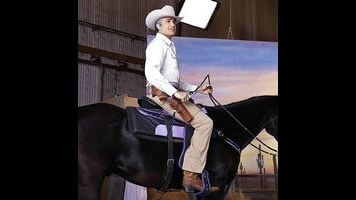Jane The Virgin stumbles by tearing down relationships before they’re built

I was very nervous when I saw last week’s promo for tonight’s Jane The Virgin, which made the episode look like one long ad for Target, its most aggressive corporate sponsor. Target’s prominence on Jane The Virgin has been a key element of the company’s “#SinTraduccion” (“#WithoutTranslation”) ad package launched earlier this year, part of a larger campaign to court more Spanish-speaking customers (you can read more about it in this Racked piece), and the promos for “Chapter Twenty-Nine” suggested that the sponsor was hijacking the story. That’s thankfully not the case, and writers Dara Resnik Creasy and David S. Rosenthal cleverly use this forced integration as fuel for an episode that explores how administrators impose their demands on creatives.
The Target scene is relatively painless, showing Rafael the #BlackFridayVirgin as he learns the strict rules of Christmas shopping with the Villanuevas. The advertising subtext is that Target is the perfect place for all your Black Friday needs, with staff members that are eager to help but will quickly get out of your hair if you already know what you need and where it is, but at least the writers keep it subtext. Unlike Empire’s extremely heavy-handed integration of Pepsi PR in last week’s Jamal storyline (the first chapter in a three-part Pepsi arc), the most forceful aspect of the Target plot in this episode is the Target setting, which bombards the viewer with the company’s logo and products.
It’s unlikely that Creasy and Rosenthal would have chosen to include a Target-centric script if it weren’t for demands from the network to satisfy a corporate partner, and the theme of administrative authority compromising creativity pops up throughout the episode. When Jane brings her writing to Dr. Lorraine Bolton, a New York Times best-selling author that she wants as her advisor, she receives vague critiques to turn the volume up, make the reader gasp, and make everything “more sparkly.” It’s easy to imagine Bolton’s words as the wishes of network executives that want their shows to have bold aesthetics that demand attention and game-changing moments that get people talking on social media, but those don’t necessarily lead to a good story, especially when those requests go against the creative impulses of the artists.
I doubt that the writers are commenting on The CW through Bolton, and the continued success of this series makes me think that Professor Chavez represents Jane The Virgin’s home network, providing thoughtful critiques on perspective and tone that help Jane sharpen her writing. (Maureen Ryan wrote a great profile of The CW’s president Mark Pedowitz for Variety, which goes into further detail regarding how he’s rejuvenated the network.) The CW might force some Target integration, but the network also lets this show’s creative team fully realize its unique vision for the series, which isn’t too bad a trade-off.
Rogelio’s plot this week directly involves network executives, and he’s forced to go back to Telemasivo when his last-ditch attempt to save Hombres Locos fails. Rogelio’s meeting with the Hollywood bigwig that might save his Mad Men rip-off is the comedic highlight of the episode, and Rogelio’s description of the final scene of the Hombres Locos is even funnier when its recited in a ’60s-styled room in front of a man deliberately posed like Don Draper in the Mad Men logo. Behold the wonder of Hombres Locos:
“So as Don Juan Draper closes the cigarette account, Rogelio picks up a carton—to celebrate, no? But instead of cigarettes, it’s filled with… cocaine! Then, Rogelio starts to snort the cocaine when BAM! Don Juan Draper shoots him in the head! Then he turns coolly to camera and says, ‘I’d like to sell the world some coke.’ Fade out. End of pilot.”

 Keep scrolling for more great stories from The A.V. Club.
Keep scrolling for more great stories from The A.V. Club.